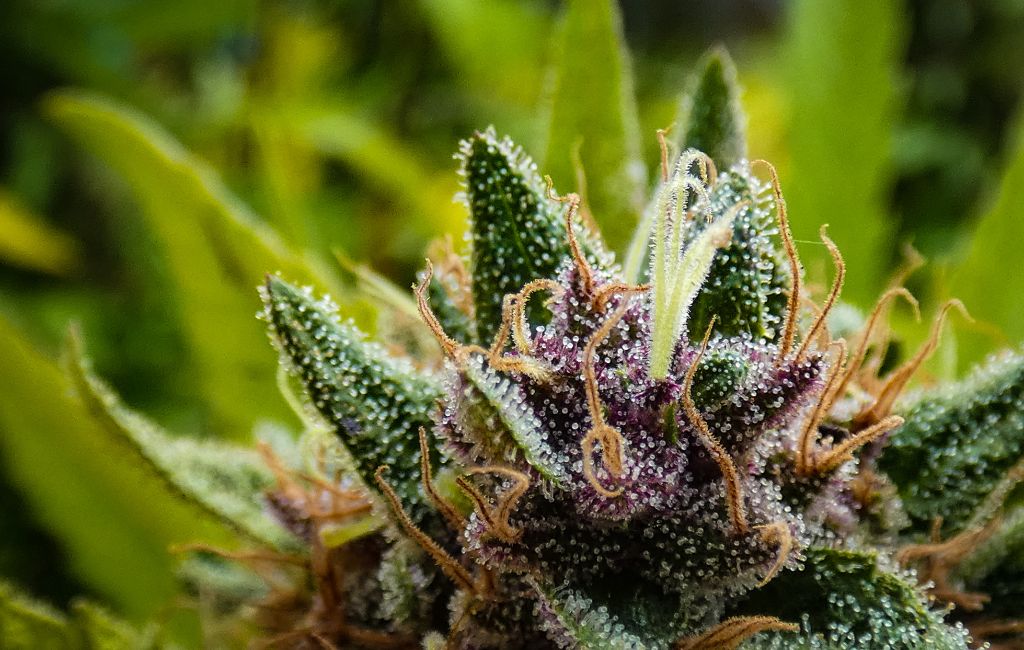THCA Flower: Nature’s Therapeutic Wonder
In recent years, the cannabis industry has seen a surge in interest surrounding various cannabinoids and their potential health benefits. Among these, THCA (tetrahydrocannabinolic acid) has emerged as a compound of significant interest. Unlike its more famous counterpart, THC (tetrahydrocannabinol), THCA is non-psychoactive, making it an appealing option for those seeking therapeutic benefits without the high.
Understanding THCA
THCA is a naturally occurring cannabinoid found in raw and live cannabis plants. It is the acidic precursor to THC and is converted to THC through a process called decarboxylation, which occurs when cannabis is heated. This transformation is why raw cannabis does not produce the psychoactive effects associated with smoked or vaporized cannabis.
How THCA Works
THCA interacts with the body’s endocannabinoid system (ECS), a complex cell-signaling system that plays a role in regulating various physiological processes such as mood, appetite, and pain sensation. Unlike THC, THCA does not bind directly to the CB1 receptors in the brain, which is why it does not produce psychoactive effects. Instead, it influences other receptors and enzymes, contributing to its therapeutic potential.
Therapeutic Benefits of THCA
Research into THCA is still in its early stages, but preliminary studies and anecdotal evidence suggest a range of potential health benefits:
- Anti-inflammatory Properties: THCA has shown promise in reducing inflammation, which could be beneficial for conditions such as arthritis and inflammatory bowel disease.
- Neuroprotective Effects: Some studies suggest that THCA may help protect brain cells, potentially offering benefits for neurodegenerative diseases like Alzheimer’s and Parkinson’s.
- Anti-emetic Properties: THCA may help reduce nausea and vomiting, making it a potential option for patients undergoing chemotherapy.
- Antioxidant Benefits: As an antioxidant, THCA can help combat oxidative stress, which is linked to various chronic diseases.
Case Studies and Research
Several case studies and research initiatives have highlighted the potential of THCA:
- A 2013 study published in the British Journal of Pharmacology found that THCA exhibited anti-inflammatory properties in animal models, suggesting its potential for treating inflammatory conditions.
- In 2017, researchers at the University of Guelph in Canada discovered that THCA could help protect brain cells from oxidative stress, indicating its neuroprotective potential.
- Anecdotal reports from patients using THCA-rich cannabis products have noted improvements in symptoms related to chronic pain, nausea, and muscle spasms.
How to Use THCA Flower
THCA flower can be consumed in various ways to harness its therapeutic benefits:
- Raw Consumption: Adding raw cannabis leaves or flowers to smoothies or salads is a popular method for consuming THCA without decarboxylation.
- Tinctures and Oils: THCA can be extracted and used in tinctures or oils, which can be taken sublingually or added to food and beverages.
- Topicals: THCA-infused creams and balms can be applied directly to the skin for localized relief from pain and inflammation.
Dosage and Safety
As with any supplement, it is important to start with a low dose and gradually increase it to find the optimal amount for your needs. Consulting with a healthcare professional experienced in cannabis therapeutics can provide personalized guidance. While THCA is generally considered safe, it is always wise to monitor for any adverse reactions.
Legal Status of THCA
The legal status of THCA varies by region. In some areas, THCA is classified similarly to THC, while in others, it is considered a separate compound with different regulations. It is important to be aware of the laws in your area before purchasing or using THCA products.
Market Trends and Availability
The growing interest in THCA has led to an increase in the availability of THCA-rich products. From raw cannabis flowers to tinctures and topicals, consumers have a variety of options to choose from. As research continues to uncover the benefits of THCA, it is likely that the market will expand further, offering even more innovative products.
Conclusion
THCA flower represents a promising avenue for those seeking the therapeutic benefits of cannabis without the psychoactive effects of THC. With its potential anti-inflammatory, neuroprotective, anti-emetic, and antioxidant properties, THCA offers a range of health benefits that are supported by both research and anecdotal evidence. As the cannabis industry continues to evolve, THCA is poised to become a key player in the world of natural therapeutics.
